
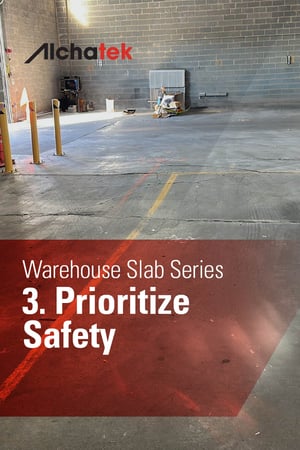 In the fast-paced environment of a warehouse or distribution center, safety is a paramount concern. One often overlooked factor that can significantly impact safety is the condition of the floor. Uneven or unstable floors can create hazards that put employees at risk. Tripping, slipping, and falling are just a few of the accidents that can occur when floors are in poor condition. Additionally, material-handling equipment like forklifts can tip over or lose control, leading to more severe accidents or even fatalities.
In the fast-paced environment of a warehouse or distribution center, safety is a paramount concern. One often overlooked factor that can significantly impact safety is the condition of the floor. Uneven or unstable floors can create hazards that put employees at risk. Tripping, slipping, and falling are just a few of the accidents that can occur when floors are in poor condition. Additionally, material-handling equipment like forklifts can tip over or lose control, leading to more severe accidents or even fatalities.
The Safety Benefits of Secure Slabs
Hiring an experienced contractor to stabilize and level slabs with polyurethane foam offers several safety advantages. First and foremost, polyurethane provides a quick and effective way to level uneven floors, eliminating tripping hazards. The foam sets quickly, allowing for a rapid return to normal operations with minimal disruption. This is crucial in a busy warehouse where prolonged repair work could create additional safety risks.
Moreover, polyurethane foam offers a durable solution. Once set, the foam provides a stable base for the concrete slab, reducing the likelihood of future sinking or shifting. This long-lasting repair minimizes the frequency of future repair work, thereby reducing the number of occasions when employees are exposed to disruption associated with repair activities.
Prevention and Training
While the act of repairing the floor is crucial, it's also vital to train employees on how to navigate the warehouse safely, particularly during the repair process. Here are some best practices:
- Safety Briefings: Before the commencement of repair work, hold safety briefings to inform employees about the upcoming changes in floor conditions and how to navigate them safely.
- Signage and Markings: Use clear signage and floor markings to indicate areas where repair work is in progress. This helps employees exercise caution in those specific zones.
- Equipment Checks: Make sure all material-handling equipment is in optimal condition, particularly if it has previously been used on uneven or unstable floors. Equipment that is not well-maintained can heighten safety risks.
- Emergency Drills: Regularly conduct emergency drills that include scenarios related to floor hazards. For example, train employees on what actions to take in the event of a tripping hazard or if a forklift were to tip over.
- Reporting Mechanism: Establish an easy and anonymous method for employees to report potential floor hazards or safety incidents. Timely reporting can expedite resolution and help prevent future accidents.
Actionable Advice for Managers
- Regular Safety Audits: Incorporate floor condition checks into regular safety audits. This proactive approach can help identify potential hazards before they lead to accidents.
- Consult Safety Experts: If you're unsure about the safety implications of your floor conditions, consult with industrial safety experts. They can provide valuable insights and recommendations.
- Employee Involvement: Involve employees in safety planning and audits. Their on-the-ground experience can provide unique perspectives on potential hazards.
- Quality Repair Materials: Always opt for high-quality repair materials like polyurethane foam. The long-term safety benefits are well worth the investment.
- Contractor Credentials: When hiring a contractor for floor repairs, check their safety record and credentials. A contractor with a strong safety record is more likely to complete the job without incidents.
- Post-Repair Inspection: After any repair work, conduct a thorough safety inspection before resuming normal operations. Ensure that all safety measures, such as signage and floor markings, are removed or updated as necessary.
- Ongoing Training: Safety training is not a one-time event. Offer ongoing training programs to keep employees updated on best practices and procedures.
- Documentation: Keep detailed records of all floor repairs, safety inspections, and training sessions. This documentation can be invaluable in case of safety audits or legal issues.
By taking a comprehensive approach to safety that includes high-quality floor repairs and robust training programs, warehouse managers can significantly reduce the risk of accidents. Polyurethane foam offers a quick, durable, and effective solution for floor repairs, contributing to a safer work environment. When combined with proactive safety measures and ongoing employee training, this creates a holistic safety strategy that protects both employees and assets.



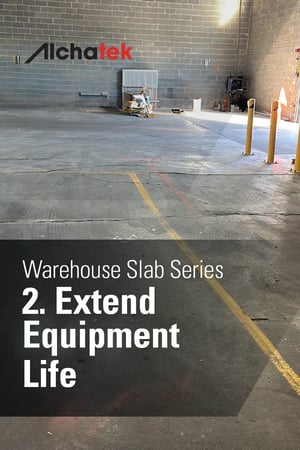 In a warehouse or distribution center, the condition of the floor can have a direct impact on the lifespan of material-handling equipment like forklifts, pallet jacks, and conveyors. Uneven or unstable floors can cause excessive wear and tear on these machines, leading to frequent breakdowns and increased maintenance costs. Over time, this can significantly reduce the lifespan of expensive equipment, necessitating premature replacements and adding to operational costs.
In a warehouse or distribution center, the condition of the floor can have a direct impact on the lifespan of material-handling equipment like forklifts, pallet jacks, and conveyors. Uneven or unstable floors can cause excessive wear and tear on these machines, leading to frequent breakdowns and increased maintenance costs. Over time, this can significantly reduce the lifespan of expensive equipment, necessitating premature replacements and adding to operational costs.
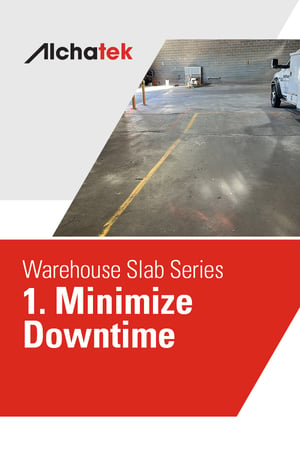 Operational downtime in a warehouse setting has far-reaching consequences that go beyond the immediate financial losses. When a warehouse floor requires repair, the disruption to the supply chain can be significant. Suppliers and customers alike feel the impact of delays, and the ripple effect can damage relationships and erode trust. Additionally, downtime affects employee productivity and morale, leading to a potential decrease in work quality and an increase in turnover rates. In a just-in-time supply chain, even a brief period of downtime can result in stockouts at retail locations, leading to lost sales and damaged customer relationships.
Operational downtime in a warehouse setting has far-reaching consequences that go beyond the immediate financial losses. When a warehouse floor requires repair, the disruption to the supply chain can be significant. Suppliers and customers alike feel the impact of delays, and the ripple effect can damage relationships and erode trust. Additionally, downtime affects employee productivity and morale, leading to a potential decrease in work quality and an increase in turnover rates. In a just-in-time supply chain, even a brief period of downtime can result in stockouts at retail locations, leading to lost sales and damaged customer relationships.
 Kyle, a seasoned sales leader, boasts a rich tapestry of diverse sales experience spanning various industries. His journey into the realm of leadership began with a distinguished tenure in the US Army and US Marine Corps, where he honed his skills in strategic thinking, discipline, and effective communication. The military background instilled in him a profound sense of commitment and a relentless pursuit of excellence, qualities that seamlessly translated into his subsequent career in professional sales. Kyle’s cross-industry expertise has not only broadened his perspective but has also equipped him with a unique skill set that enables him to identify innovative solutions and tailor his approach to meet the specific needs of a diverse clientele.
Kyle, a seasoned sales leader, boasts a rich tapestry of diverse sales experience spanning various industries. His journey into the realm of leadership began with a distinguished tenure in the US Army and US Marine Corps, where he honed his skills in strategic thinking, discipline, and effective communication. The military background instilled in him a profound sense of commitment and a relentless pursuit of excellence, qualities that seamlessly translated into his subsequent career in professional sales. Kyle’s cross-industry expertise has not only broadened his perspective but has also equipped him with a unique skill set that enables him to identify innovative solutions and tailor his approach to meet the specific needs of a diverse clientele.


 Paul is a dynamic and results-driven executive with extensive international management, marketing, business development, strategic planning, market expansion success, and consultation experience across the United States and Latin America.
Paul is a dynamic and results-driven executive with extensive international management, marketing, business development, strategic planning, market expansion success, and consultation experience across the United States and Latin America.
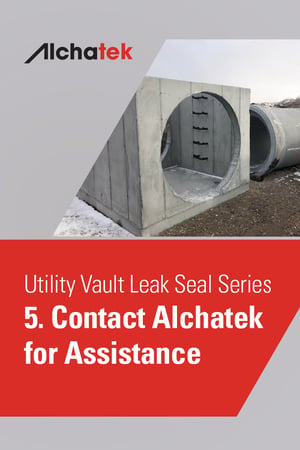 The importance of properly sealing leaks in utility vaults cannot be overstated. Utilizing the right materials and following best practices are fundamental. However, the process doesn't stop there; selecting the right contractor is a crucial decision that directly impacts the quality and longevity of your repair.
The importance of properly sealing leaks in utility vaults cannot be overstated. Utilizing the right materials and following best practices are fundamental. However, the process doesn't stop there; selecting the right contractor is a crucial decision that directly impacts the quality and longevity of your repair.


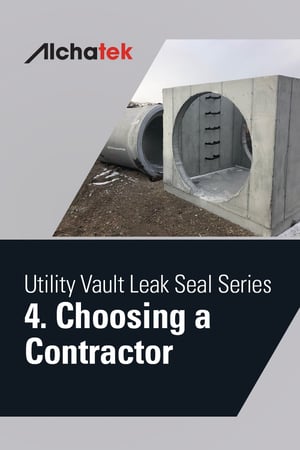 The quality of workmanship directly impacts the effectiveness and longevity of the repair, making it imperative to choose a contractor wisely.
The quality of workmanship directly impacts the effectiveness and longevity of the repair, making it imperative to choose a contractor wisely.
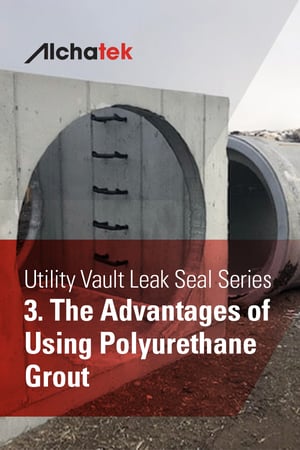 Leak sealing in utility vaults is a critical aspect of maintaining infrastructure integrity. Various methods and materials are available for this purpose, but they are not all equal in terms of performance.
Leak sealing in utility vaults is a critical aspect of maintaining infrastructure integrity. Various methods and materials are available for this purpose, but they are not all equal in terms of performance.
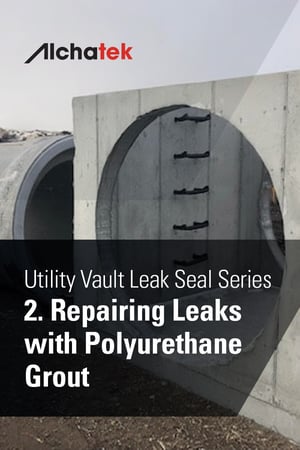 Regarding water infiltration in utility vaults, precast joints often serve as weak links. Conventional methods like cementitious grouting offer temporary solutions but often fail to withstand structural movements or shifting over time, resulting in a reoccurrence of leaks.
Regarding water infiltration in utility vaults, precast joints often serve as weak links. Conventional methods like cementitious grouting offer temporary solutions but often fail to withstand structural movements or shifting over time, resulting in a reoccurrence of leaks.
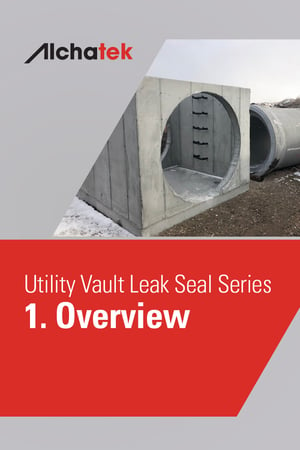 Utility vaults are critical components of modern infrastructure, providing secure containment for electrical, telecommunications, or other equipment. They are designed to be robust and durable. However, one common but often overlooked issue is the occurrence of leaks, most commonly found in precast joints and pipe penetrations.
Utility vaults are critical components of modern infrastructure, providing secure containment for electrical, telecommunications, or other equipment. They are designed to be robust and durable. However, one common but often overlooked issue is the occurrence of leaks, most commonly found in precast joints and pipe penetrations.